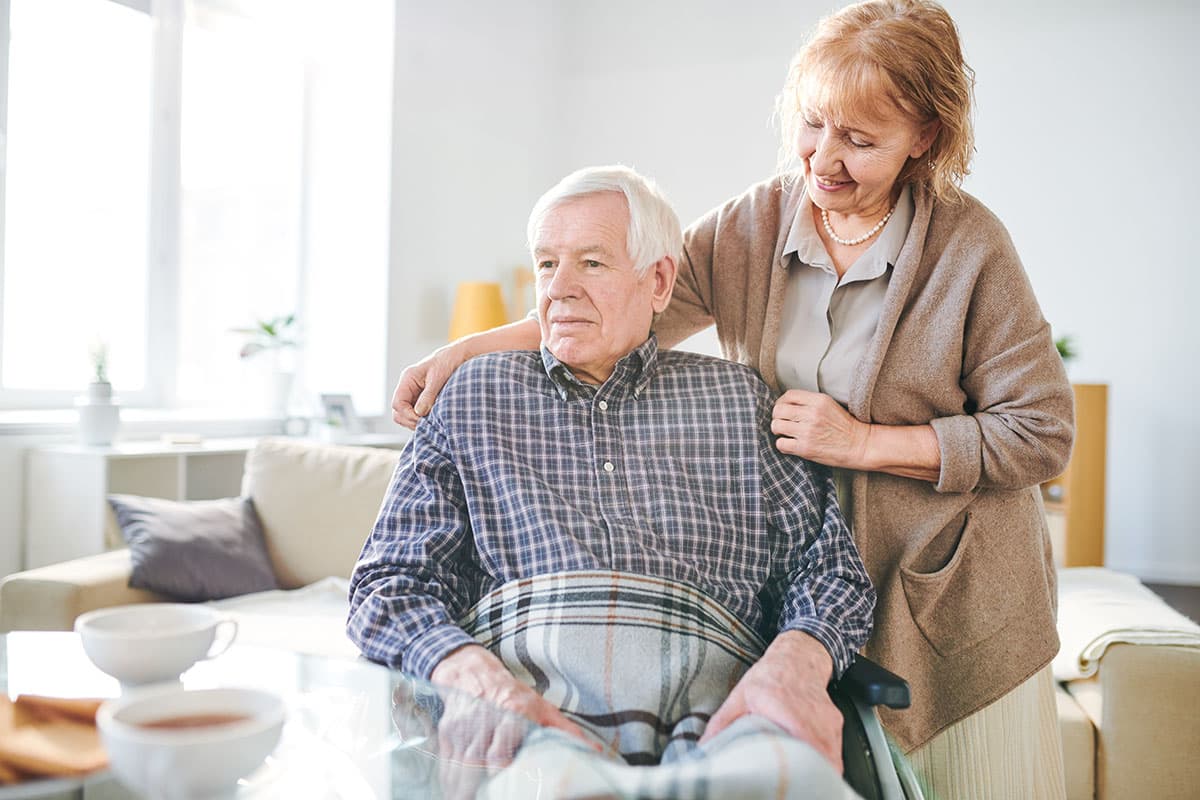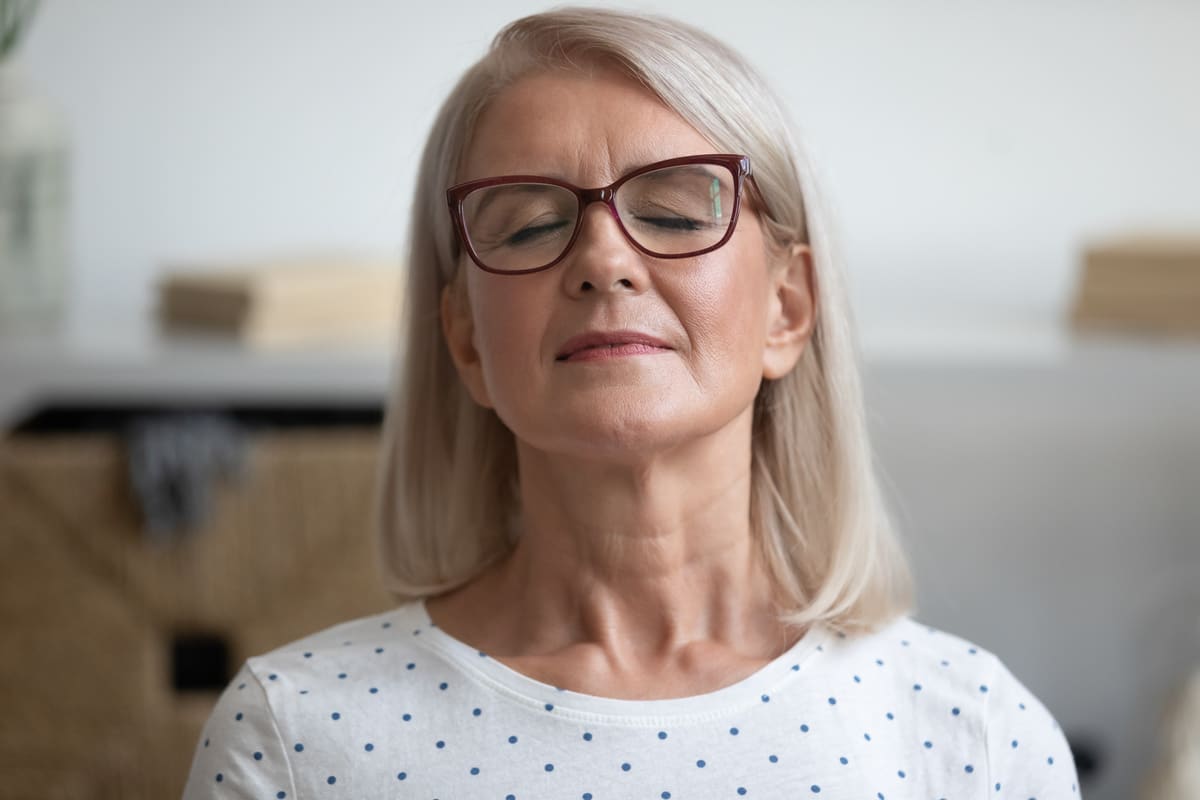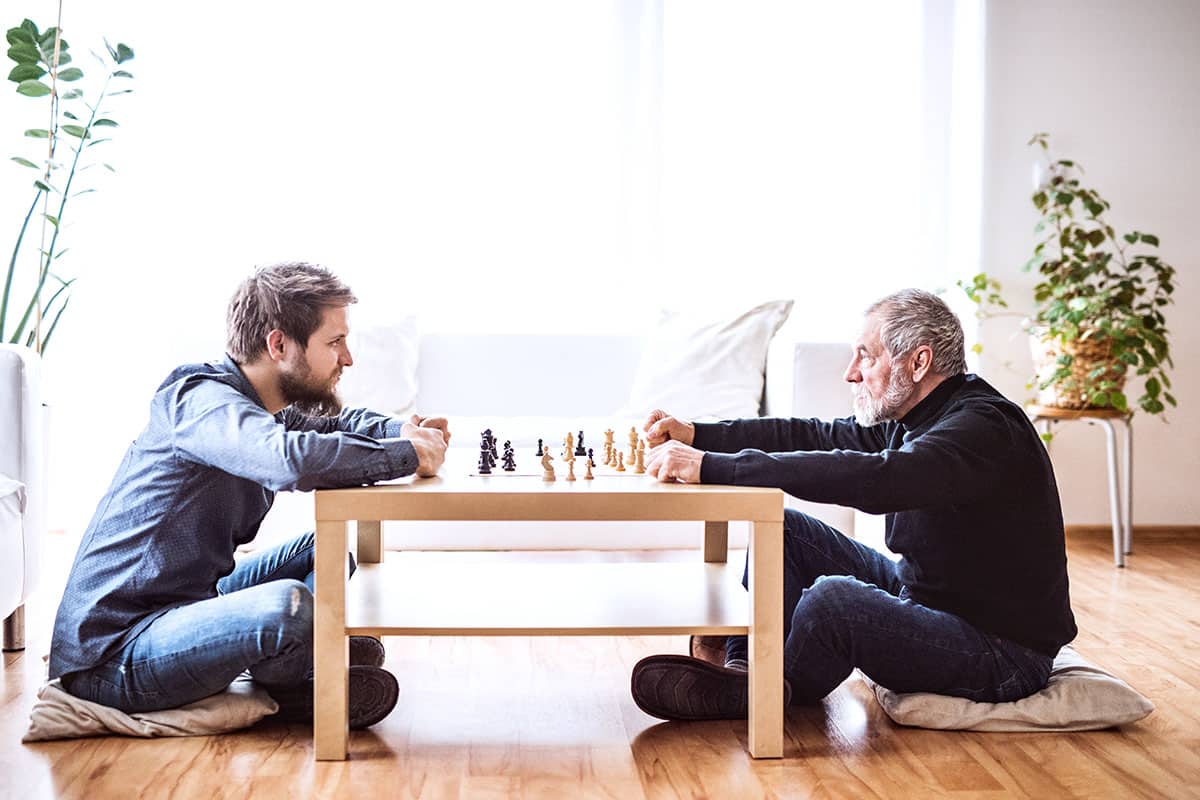Important Notes:
- Penn Memory Center clinical visits are available in-person and through video conference. COVID-19 screening is conducted for all patients.
- As part of your clinical visit, a tester will walk you through the Functional Rating Scale. Feel free to print a copy of the test so that you can follow along.
- The Penn Memory Center is open for research visits. Implementing COVID-19 safety guidelines is a priority for researchers during visits. For information on research participation opportunities click here.
- Penn Memory Center social work visits are available via phone or video conference. Please ask your doctor or contact Alison Lynn at 267-627-4038 or lynn@pennmedicine.upenn.edu
- Most programs, groups, and outreach events are now held virtually through zoom. Programs running are:
The COVID-19 Stay-at-Home Survival Guide for Those Caring for a Loved One with Dementia

By Alison Lynn, LCSW & Cynthia Clyburn, LSW
Measures are being taken to reduce the risk of exposure to COVID-19 (Coronavirus). In addition to frequent hand washing, the CDC has advised practicing “social distancing” by avoiding close contact with those that are sick, staying home as much as possible, and wearing a face mask in public. There has been reduced access to care programs and services, such as adult day centers and home care, which many individuals with dementia and their caregivers rely on for support. Isolation, increased stress, and changes in daily routine can generate challenges for you and your loved one with dementia. This article offers guidelines for managing daily care at home and coping with anxiety during this difficult time.
Learn about COVID-19 and how to protect yourself here: https://www.cdc.gov/coronavirus/2019-ncov/index.html

Some Basic Facts:
The information below represents what we currently know about COVID-19. We present these facts starkly because this is a serious situation. Having good information should help you to protect yourself and your person with dementia.
Something New – Novel Coronavirus – or COVID-19 – is a new strain of a virus that attacks the respiratory system and other organs as well. Because it is a new strain, very few people can resist it, no matter how hardy they may be. Our bodies haven’t seen this strain before, so our immune systems haven’t developed ways to fight it off. Also, there is, as yet, no vaccine, so no medical measures can yet be taken to protect us against it.
Serious – COVID-19 is a serious disease threat. The Centers for Disease Control and Prevention (CDC) have reported over 10 million cases and more than 230,000 deaths of COVID-19 since Jan. 21, 2020 in the United States. The illness appears to have more serious outcomes than the flu, and death rate predictions are higher.
Risk Factors – COVID-19 requires the body’s immune system to mount a response to fight it off. So, anyone who has a weak immune system is at risk. Two factors are associated with weakened immune response: age and underlying chronic conditions. Those over 60, and especially those over 80 (even those who seem fit), are at higher risk for acquiring the illness. Also, individuals with chronic conditions like cancer, lung disease, diabetes, high blood pressure, and heart disease are at increased risk for COVID-19.
Points of Entry – The illness enters the body through the nose, eyes, or mouth and then proceeds to the lungs. This is why we are advised to avoid touching our face. It may also enter through particles in the air. This is why social distancing and avoiding crowded situations are recommended.
Alzheimer’s and COVID-19 – The person for whom you provide care is in a high-risk situation. Most persons living with Alzheimer’s are over the age of 65 (one risk factor), and most persons over 65 have at least one, and typically more than one, chronic illness (the other risk factor).
The CDC website is an excellent source of reliable information
Local Health Department Numbers can be found here

Social Distancing:
Many of you have become familiar with the term “social distancing” or the practice of seperating yourself and your person from close contact with groups of people. This is admittedly very difficult, so here are some thoughts:
- If you are working outside the home, see if it is possible to work at a distance through telecommuting means (phone and videocall contact, etc.).
- Examine patterns of social interactions.
- If you regularly attend worship services, see if your place of worship offers streamed services, or consider using the regular time of attendance as a time of home worship.
- If you take your person shopping or to malls, reconsider. If you must, perhaps use smaller shops at off-hours, and avoid very crowded places. Call friends, family, or neighbors to see if they are going to the store and can pick up items you might need
- Think about outings that present minimal risks: going to large parks, taking walks
- Limit going out to restaurants – or stop altogether, order take out and see if they can deliver curbside.
- If you want to support your favorite restaurants, bars, and other small businesses consider purchasing gift cards that can be used once regular operations resume.
- Here’s a really hard one: family visits.
- Keep them small – one or two people at a time
- Ask everyone who comes to follow the same safety rules you are (wash hands)
- No grandkid visits
General Tips for Caregivers:
- Stay calm. People with dementia are very aware of non-verbal communication such as tone of voice and body language, and will often mirror it. If you are calm, your relative is more likely to be calm as well. See below for our tips on managing your own anxiety
- Expect some changes. Stress, anxiety, and changes in routine can all have a negative impact on your relative’s cognition. Since the onset of the pandemic, we have seen many of our patients’ disease progression quicken.
- Look out for sudden, drastic changes, though. As always, this could be a sign of pain, illness, or infection. If you see this, contact your relative’s doctor.
- Limit TV news. People with dementia may not remember the content of a TV show or a movie, but they’ll remember how it made them feel. Try to avoid exposure to too much panic-inducing coverage and stick with something lighter, like a cooking or travel show.
- Simplify the message. If your relative asks what’s going on, try to make your explanation as simple as possible, focus on positives, and redirect to a favorite activity. A good place to start is: “there’s an illness going around, but you’re safe with me inside the house. Can you help me remember how to play that game you like?”
- Set a daily routine. Try to have your relative wake up, eat, and go to sleep at around the same time every day, if possible. You can also try to create a schedule to keep your relative busy and engaged throughout the day, which will improve their mood and decrease challenging behavioral symptoms. See below for an example.
- If your person is living in an assisted living or skilled nursing facility: It is increasingly likely that visitors, even close family, will not be permitted to visit relatives in such facilities. The staff will continue to provide care and comfort, but you will not be able to have in-person time with the person that may be important to you. Ask if your loved one’s residence has a program for facilitated video calls or outside visits in place. Or, consider asking family and friends to send snail mail to the facility. If you are alone and feeling this as yet another loss, take action. Try to go out for a walk, call family and friends, listen to your favorite music, look at scrapbooks, read a good book, or contact a PMC social worker for support. If you belong to a church or synagogue, call and ask to be put on a prayer list. Many religious staff are working from home and can respond to your messages.

Medical Care:
You are very likely in a position where you have to manage your person’s routine and chronic health care as well as to respond to changes in condition or react in an emergency situation. It’s important to recognize that, with COVID-19, you need to have a plan for how to handle some medical situations that might arise in the course of caregiving.
If you have a primary care provider (a nurse practitioner, physician, of physician assistant), contact the office to see what procedures the office has put in place for handling routine visits and visits related to any concerns you may have should you observe possible COVID-19 symptoms. If they don’t, ask for advice about
- Handling routine and chronic care situations that you’d usually manage by bringing the person to the office.
- Dealing with possible COVID-19 symptoms
- Expected delays for elective procedures
- Responding to emergency situations – should you call the office first? Go directly to an Emergency Department?
If you feel you have an emergency, but are not sure, and cannot get through to your primary care provider, call your local Emergency Department. Most have a nurse or physician on duty who can offer advice about the need to come in immediately or wait at home.
If you think you or your person might be showing signs of COVID-19 and think you should be tested, it’s important to call your primary care provider (or the Emergency Department) first. They may be able to provide advice about where and if you need to be tested immediately or to wait. The clinic office or Emergency Department may not be where you can get tested
If you are a participant in a research study, call your research coordinator for instructions for follow up.

Anxiety-busting Tools for Caregivers:
- Take 10 slow, deep breaths in through your nose and out through your mouth.
- Play the 5-4-3-2-1 game to ground yourself: name 5 things you can see, 4 things you can hear, 3 things you can touch, 2 things you can smell, and 1 thing you can taste.
- Do some progressive muscle relaxation. Tense and relax one body part at a time, starting with your toes and slowly moving your way up to your head. Tense for about 5 seconds, and relax for about 30 seconds.
- Plunge your face into a bowl of ice water for 10-30 seconds at a time. This triggers your “dive reflex,” which allows your parasympathetic nervous system to calm you down.
- Sit or lie down in a comfortable position and listen to a guided meditation, like these from Tara Brach:https://www.tarabrach.com/guided-meditations/
- Pamper yourself: put on some soothing music, light a candle, and take a hot shower or bath.
- Go for a walk around the block, or do an at-home yoga video, like these from Yoga With Adrienne:https://www.youtube.com/user/yogawithadriene
- Call a close friend or family member and catch up for a few minutes.
- Reach out to a Penn social worker for emotional support. You can email Cynthia at Cynthia.clyburn@pennmedicine.upenn.edu or Alison at Alison.lynn@pennmedicine.upenn.edu.
- Call the Alzheimer’s Association’s 24/7 hotline (800-272-3900) or the Alzheimer’s Foundation of America’s 24/7 hotline (866-232-8484).

Meaningful Engagement:
Meaningful engagement for your relative with dementia will be a crucial component of your caregiver toolbelt during this time of isolation because it can improve mood, improve sleep, decrease agitation, and decrease challenging behavioral symptoms. Focus on pleasant, stimulating, and meaningful activities that foster emotional connections and engage your loved one’s senses and memories.
General Useful Tips:
- Focus on process rather than results. If your relative spends an hour sorting items and they’re more jumbled than they were to begin with, that’s ok! It’s most important that they are engaged.
- Break activities into small, manageable chunks. For example, if your relative used to throw elaborate dinner parties, try giving them small, discrete tasks one at a time (ie: “please mash these potatoes,” or “let’s go through this cookbook together and choose a menu”).
- Focus on roles. Humans want to feel useful! If your relative worked as a nurse but had to retire, think about what they might have gotten out of their work. They probably enjoy helping and nurturing people during a difficult time, so you might try giving them a “case” and asking for advice. Or, introduce any activity by saying, “I need your help with this. Can you show me how to do it?”
- Choose activities that can be done in short bursts. People with memory loss often have shorter attention spans and difficulty concentrating.
- Choose physical activities over sedentary ones, when possible.
- Have a few activities available so if your relative tires of one you can move on to another quickly.
- Have materials set up in advance and keep the surrounding environment as distraction-free as possible.
- Change your approach:
- Instead of asking “Would you like to color?” Try, “Now it’s time to color” or “I would love for you to join me.”
- Instead of asking at all, sit down next to your relative and quietly start doing the activity yourself.
- If your relative refuses an activity, don’t force them to participate. You can always try again in a few days, weeks, or months.
- Be confident and positive in your approach. If you’re skeptical that your relative won’t like an activity, they may pick up on your non-verbal cues and feel skeptical as well.

Activity Ideas:
- Plant seeds together, water plants, or arrange flowers
- Listen to favorite music
- Listen to a book, short story, or poetry on tape
- Sing or dance
- Pray or read religious texts
- Bake together— have your loved one stir the batter, decorate with icing, etc.
- Watch a favorite old movie or TV show
- Call a close friend or relative
- Work on a puzzle, crossword puzzle, word search, etc.
- Play a simple board game
- Go for a walk around the neighborhood
- Reminisce — flip through old photo albums and talk about happy memories, or write them down to create a family history
- Clean the house together — have your loved one wipe down surfaces, wash non-fragile dishes, vacuum, rake leaves, etc.
- Do laundry — have your loved one fold towels, match socks, or “iron” with an unplugged iron
- Use aromatherapy
- Try arts and crafts — paint, knit, string beads, adult coloring books, make homemade bookmarks, etc.
- Write thank you letters to first responders
- Make a collage or vision board
- Start a gratitude journal together and write down what makes you grateful
- Sort: coins, silverware, linens, collections, etc.
- Spend time with your pets, or offer to take a neighbor’s dog for a walk
- Look through cookbooks and plan a dream dinner party menu
- Have “spa time”— try a hand massage, paint nails, make homemade scrubs
- Put items in a shopping basket online (you don’t have to check out!)
- Play online brain games
- Play online brain games
- Watch videos on the 4K Relaxation Channel or go on a “virtual” train ride
- Participate in a virtual exercise class via Ralston Center (link)
- Play balloon volleyball or ‘bowl’ at home on any hard surface using old cans and any kind of ball
- Go for a drive and play I Spy, or simply listen to music and enjoy the scenery
- Go on a virtual tour of a museum (ie: https://www.philamuseum.org/collection)
Products for Home Activities:
- https://www.enasco.com/c/Senior-Activities-Nasco
- https://www.alzstore.com/alzheimers-dementia-activities-s/1673.htm
Sample Daily Routine:
Morning:
- Wake up, wash, brush teeth, dress
- Prepare and eat breakfast
- Read a short story or poetry together
- Fold laundry
- Go for a walk or try chair exercises
- Work on a puzzle
Afternoon:
- Prepare and eat lunch
- Watch a movie
- Have some quiet time or take a short nap
- Flip through an old photo album
- Tend to plants in the garden
- Wipe down countertops, dust furniture. sweep floors
Evening:
- Prepare and eat dinner
- Wash and put away dishes
- Practice a guided meditation
- Call a relative together
- Listen to soothing music
- Bathe, get ready for bed, read a book
Additional Articles and Resources:
Alzheimer’s Disease:
- https://www.alz.org/help-support/caregiving/daily-care/daily-care-plan
- https://alz.org/help-support/caregiving/daily-care/activities
- https://www.alzheimers.net/checklist-and-daily-care-plan-for-dementia/
Frontotemporal Degeneration:
- https://www.theaftd.org/wp-content/uploads/2018/03/PinFTDcare_Newsletter_summer2016.pdf
- https://www.theaftd.org/living-with-ftd/managing-ftd/
Lewy Body Dementia:
COVID-19: Coping with Stress and Anxiety: https://www.cdc.gov/coronavirus/2019-ncov/prepare/managing-stress-anxiety.html